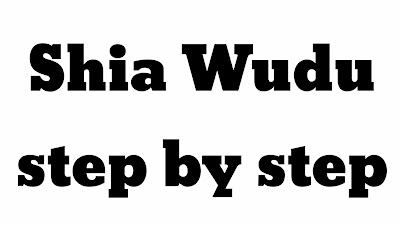what is the difference between sunni and shia
what is the difference between sunni and shia
All the Muslims beleaved that Allah is One, Muhammad (S) is His last Prophet, the Qur’an is His last Book for group, which at some point Allah can resurrect all kinsmen, and that they are questioned regarding their beliefs and actions. There are, however, disagreements between 2|the 2} colleges within the following two areas: 1. The Caliphate (successorship/leadership) that the Shi’a believe is that the right of the Imams of Ahlul-Bayt. 2. The Moslem rule once there's no clear Qur’anic statement, neither is there a Hadith upon that Muslim colleges have in agreement. The second issue has root into the primary one. The Shi’a sure themselves to ask Ahlul-Bayt for account the path of Prophet (S). they are doing this in conformity with the order of Prophet rumored within the authentic Sunni and Shi’i collections of traditions beside what the Qur’an attests to their excellent purity. The disagreement regarding the caliphate shouldn't be a supply of division between the 2 colleges. Muslims agree that the caliphate of Abu Bakr came through election by a restricted range of individuals and was a surprise for all alternative companions. By restricted range, I mean, the bulk of the outstanding companions of prophet had no data of this election. ‘Ali, Ibn Abbas, Uthman, Talha, Zubair, Sa’d Ibn Abi Waqqas, Salman al-Farsi, Abu Dharr, Ammar Ibn Yasir, Miqdad, Abdurrahman Ibn Owf were among those that weren't consulted nor even au fait of. Even Umar confessed to the actual fact that the election of Abu Bakr was while not consultation of Muslims. (See sahih al- Bukhari, Arabic-English, Tradition eight.817) On the opposite hand, election implies selection and freedom, which each Muslim has the correct to elect the campaigner. Whoever refuses to elect him doesn't oppose God or His courier as a result of neither God nor His courier appointed the appointive person by individuals. Election, by its nature, doesn't compel any Muslim to elect a selected campaigner. Otherwise, the election would be coercion. this implies that the election would lose its own nature and it'd be a dictatorial operation.
 |
| what is the difference between sunni and shia |
All the Muslims beleaved that Allah is One, Muhammad (S) is His last Prophet, the Qur’an is His last Book for group, which at some point Allah can resurrect all kinsmen, and that they are questioned regarding their beliefs and actions. There are, however, disagreements between 2|the 2} colleges within the following two areas: 1. The Caliphate (successorship/leadership) that the Shi’a believe is that the right of the Imams of Ahlul-Bayt. 2. The Moslem rule once there's no clear Qur’anic statement, neither is there a Hadith upon that Muslim colleges have in agreement. The second issue has root into the primary one. The Shi’a sure themselves to ask Ahlul-Bayt for account the path of Prophet (S). they are doing this in conformity with the order of Prophet rumored within the authentic Sunni and Shi’i collections of traditions beside what the Qur’an attests to their excellent purity. The disagreement regarding the caliphate shouldn't be a supply of division between the 2 colleges. Muslims agree that the caliphate of Abu Bakr came through election by a restricted range of individuals and was a surprise for all alternative companions. By restricted range, I mean, the bulk of the outstanding companions of prophet had no data of this election. ‘Ali, Ibn Abbas, Uthman, Talha, Zubair, Sa’d Ibn Abi Waqqas, Salman al-Farsi, Abu Dharr, Ammar Ibn Yasir, Miqdad, Abdurrahman Ibn Owf were among those that weren't consulted nor even au fait of. Even Umar confessed to the actual fact that the election of Abu Bakr was while not consultation of Muslims. (See sahih al- Bukhari, Arabic-English, Tradition eight.817) On the opposite hand, election implies selection and freedom, which each Muslim has the correct to elect the campaigner. Whoever refuses to elect him doesn't oppose God or His courier as a result of neither God nor His courier appointed the appointive person by individuals. Election, by its nature, doesn't compel any Muslim to elect a selected campaigner. Otherwise, the election would be coercion. this implies that the election would lose its own nature and it'd be a dictatorial operation.


Comments
Post a Comment